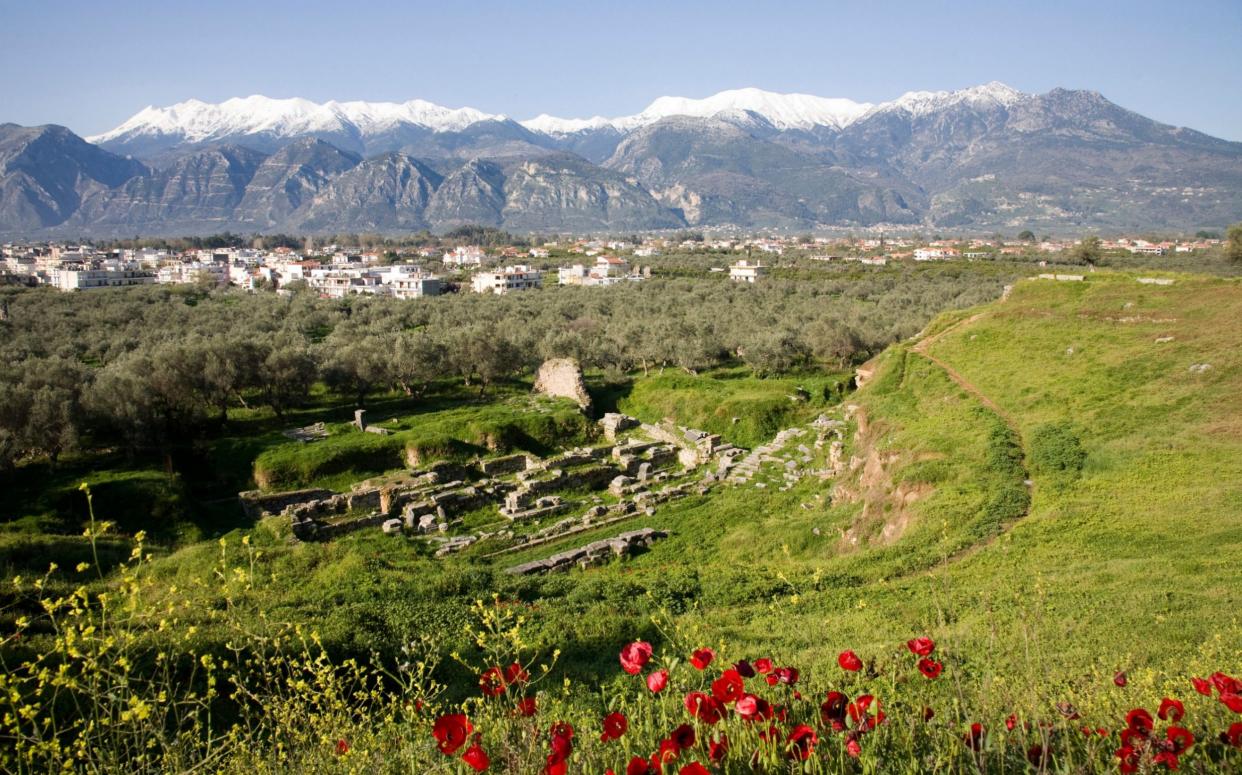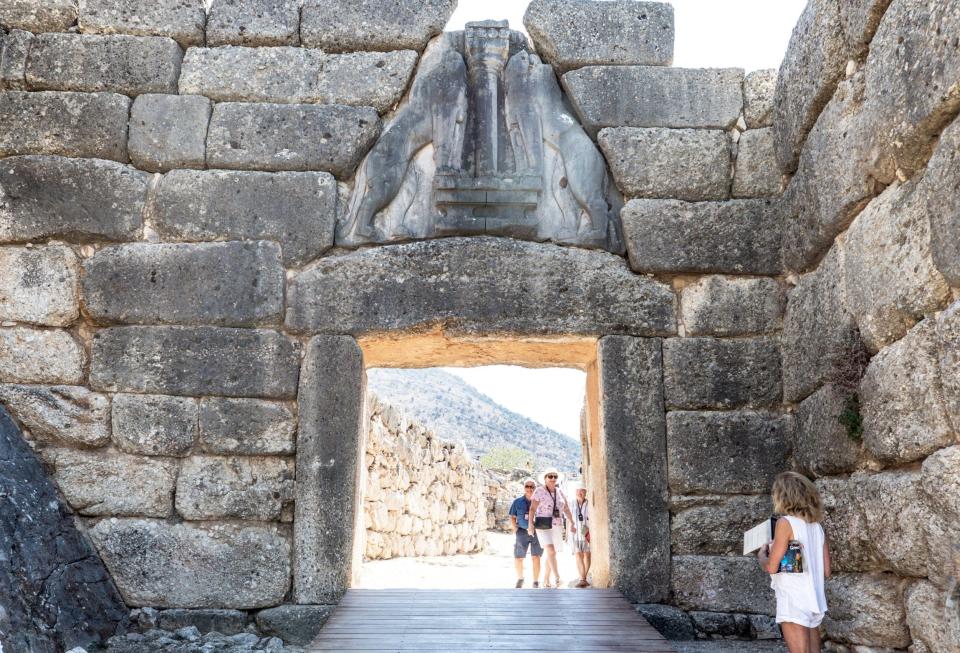On the trail of Homer’s heroes in Greece

As I sheltered from the pale winter sun in the shade of Mycenae’s Lion Gate, I had never felt closer to Homer’s Iliad – and the Greek heroes of the Trojan War.
This was where Agamemnon, king of Mycenae, headed off to Troy, on Turkey’s west coast, to bring back Helen, the most beautiful woman in the world – and the wife of Agamemnon’s brother, Menelaus.
In my hand was the new translation of the Iliad by Emily Wilson, a British professor at Princeton and the first woman to translate the Odyssey, which dates from roughly 750 BC, into English. Guided by her lovely work – true to Homer’s original Greek but not strangled in olden-days English – I set out to explore Homer’s Greece.
And in the Peloponnese, a great deal of it remains – not least the creamy stone palace of Mycenae. The city was certainly standing in 1200 BC, when the Trojan War is thought to have taken place, and Agamemnon’s citadel still fits Homer’s description as one “rich in gold”. While Zeus, king of the gods, adored Troy, his wife, Hera, said in the Iliad: “I love three cities most of all by far – Mycenae with its spacious streets, and Sparta, and Argos.”
I walked through the Lion Gate, built in around 1250 BC – with its two lionesses nestling up against a Doric column, the oldest coat of arms in the world – and strolled along Mycenae’s spacious streets.

To my right was the royal burial ground where, in 1876, the German archaeologist Heinrich Schliemann found Agamemnon’s gold funeral mask. At least that’s what he thought, when he declared to King George of Greece in a telegram: “I have gazed upon the face of Agamemnon.” In fact, Schliemann had dug too deep. The mask – now displayed in the National Archaeological Museum of Athens – was too old to be Agamemnon’s, dating back to 1500 BC.
But the city was still occupied by a Mycenaean Greek civilisation 300 years later, at the time of the Trojan War, and as I walked the shallow hill to the peak of Mycenae, every detail of the epic story rang true. There is even a room that’s said to be the bathroom where Clytemnestra, Agamemnon’s wife, killed him in the bath on his return from Troy.
Continuing on my quest, I headed next to Sparta. The two-hour drive takes you through Arcadia – the wilderness of legendary beauty, celebrated by everyone from Virgil to Tom Stoppard. It’s still heart-stoppingly lovely. Soaring cypresses flank dormant olive groves, skirted by peaks dotted with brown scrub and scarred with white stone.
Sparta was home to King Menelaus and Helen: once Helen of Sparta, before she was kidnapped by the Trojan prince, Paris, and became Helen of Troy.
Today, Menelaus and Helen’s Sparta is empty. There wasn’t a single other tourist on the December morning I visited its ancient acropolis, a bewitching theatre built around 30 BC – long after the Iliad, but nevertheless a good place to pick up Wilson’s translation again.

As their relationship soured at Troy, a nostalgic Paris referred back to the golden night at Marathonisi – the empty, wooded peninsula off the Peloponnese I planned to visit the following day. That’s where Paris first made love to Helen after stealing her from Menelaus.
It was this passage that I settled down to read, under the lengthening shadow of the cypresses in the quiet theatre at Sparta. Homer had never seemed so alive.
Essentials
British Airways (ba.com) flies from London Heathrow to Athens from £161 return; Ryanair (ryanair.com) flies from London to Athens from £57 return.
Kalamitsi Hotel, Kardamyli (00 30 2721073131; kalamitsi-hotel.gr) has double rooms from £105 per night.
Harry Mount is author of Odyssey – Ancient Greece in the Footsteps of Odysseus. Emily Wilson’s translation of Homer’s Iliad (£15.99) is published by WW Norton


